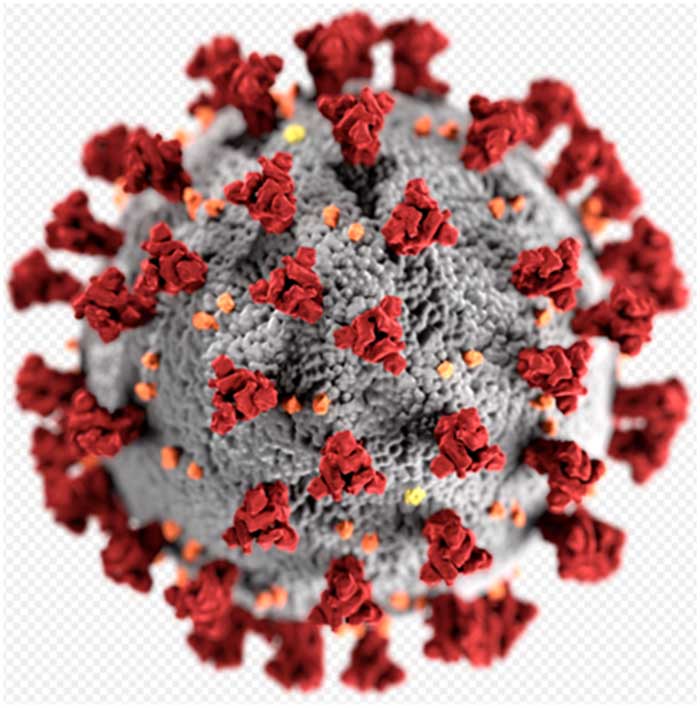
We’re confronted with competing theories about the origin of this novel coronavirus and competing strategies for dealing with it, as well as gross uncertainties in the absolute number of infections and recoveries. The things that are easiest to track are the number of hospitalizations of the diagnosed, and those actually dying with the virus while hospitalized or in a secure setting.
The infectious rate (distinguished from the disease rate) appears to be quite high, but mortality rates based on known infections will result in the highest possible rate. This is because the deaths are exactly known, while the known infections are but a part of the total number of infections. It’s like comparing 5 deaths to 100 infections (5/100) with 5 deaths to 1,000 or 10,000 infections (5/1,000, 5/10,000). The mortality rate is dependent on the denominator.
Mortality rates based on population have little uncertainty because the population is fairly static (births and deaths evening out) but result in the lowest possible rate at any time figured because the numerator (deaths) increases daily. As of time of writing, the US mortality/population ratio is about .01% (1/100th of 1 percent), with Belgium showing the highest country rate of .04% (Johns Hopkins Coronavirus Resource Center).
According to Center figures, mortality as a ratio to world population is greatly less, about .0005% (5/10,000th of 1 percent). These ratios inch up daily, but do not lack precision.
We’ll continue to hear that information will become more precise over time, leading to better-informed decision making. This sounds reasonable until one considers the nature of complex systems such as the one we’re currently trying to figure our way out of. As complexity increases, decision making becomes more imperfect.
Public dispensers of strategy and policy, seeking credibility, may speak with a confidence beyond what is warranted. As life all too often teaches us, all we can usually do about even minimally complex things is offer an educated guess. Though we crave assurances, the universe does not exist to satisfy us.
To hold conflicting ideas in our head, to argue with oneself is an antidote to self-indoctrination. Orthodoxy, by definition, has been unable to produce a single idea. It is the unique ability of our species to doubt and question. And, somewhere along the line, as a result of all the doubting and questioning, light sometimes appears.
In all probability, our understanding of this coronavirus experience will remain imprecise, even long after it passes. We have the Spanish flu for an example. We don’t know where, when or how it started. There are broad estimates, but due to the complexity we lack reliable figures on the number of infected and the number of deaths. What we do know is that it was highly infectious with a sudden onset, and that it was probably not a good idea to be fighting a world war simultaneously with the epidemic.
This last clause can inform a direction our own country could be taking, now and in the future, although it never has. We, in the United States, live in the world’s reigning technological and military superpower but its moral power is puny. Capitalism, in its higher form of imperialism, cannot spare a conquest. We keep them all. Our “exit strategy” is not to leave. We have yet to move beyond the formulation of ‘the rules of war’ as a high water mark of our advanced civilization.
As I’m writing this the “Global Citizen” musical telecast is playing. To promote the idea of a world together, the “Global Citizen” logo never leaves the top left of the viewing screen. This presents a problem that individuals have been unable to solve since organized nation states came into being.
You cannot declare yourself a citizen of the world without coming into conflict with whatever state claims you as a citizen. For matters that could prove consequential for the state, declaring yourself a global citizen will surely make you an enemy of the state. The very mention of world citizenship draws suspicion and invites investigative files. No allegiance? A socialist? A communist?
The music program is thoughtfully organized around the universals of love, fellowship, caring, appreciation and cooperation. Here ‘global citizen’ is deprived of political meaning which is a subject worth taking up. It is illogical to think that growing world problems such as global warming, resource shortages, pollution, natural disasters, nuclear proliferation and war — particularly war — can be properly addressed with our current mindset.
An alien looking down on Earth could quickly spot what has so far eluded us. That the system of competing states bears responsibility for and is incapable of dealing with problems in a way that meets the basic needs of all the world’s inhabitants. Ideally, a world government based on socialist principles of worker emancipation with goods produced for social usefulness instead of idle profit. An economy that repairs the poor in the path of the approaching trillionaires. And, recognizing our still primitive nature, a supra-national police force.
Farfetched? Very. But the risks are real. A century ago the Spanish flu was raging in the foxholes of WW1. Today the coronavirus rages in a world roiled in conflicts, just this side of WW3. Same world. One world.
James Rothenberg, of New York State, writes on U.S. social and foreign policy.
SIGN UP FOR COUNTERCURRENTS DAILY NEWS LETTER









































